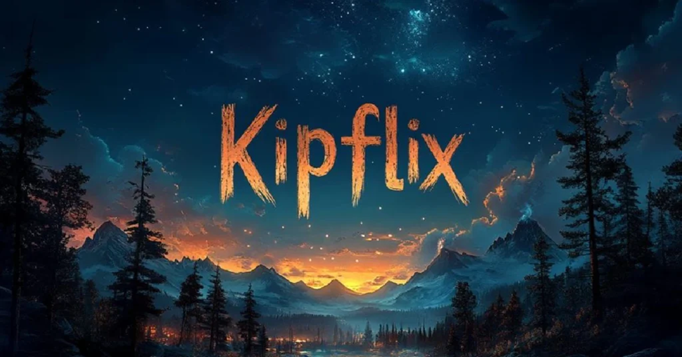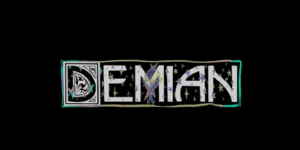In the ever-evolving world of digital entertainment, Kipflix has emerged as a controversial disruptor. At first glance, it might seem like just another free streaming site—but as millions of users in 2026 are discovering, it’s far more than that.
Kipflix offers unrestricted, no-subscription access to a wide variety of popular TV shows, movies, and sometimes even live broadcasts. It’s sleek, fast, and doesn’t ask you to create an account or hand over your credit card. That’s the appeal.
But like many things that sound too good to be true, Kipflix raises some serious questions—about legality, digital safety, content rights, and the future of online media consumption. Let’s dive into everything you need to know.
What Is Kipflix?
Kipflix is an unofficial online streaming platform that has quickly gained traction in 2026, particularly among:
- Users frustrated with overpriced streaming bundles
- Digital nomads looking for on-demand global content
- Redditors and tech-savvy individuals exploring alternative media sources
Key Features of Kipflix:
- Free access to a vast library of content
- No login, no subscriptions
- A wide range of movies, series, and live channels
- Minimal ads or pop-ups (at least initially)
- Simple user interface with fast streaming speed
Unlike legitimate platforms like Netflix, Hulu, or Disney+, Kipflix operates in a legal gray area, hosting or linking to copyrighted material without apparent distribution rights.
Why Is Kipflix Blowing Up in 2026?
1. Streaming Fatigue Is Real
With more than 10 major streaming platforms now charging separate fees (Netflix, Disney+, Max, Paramount+, Apple TV+, and others), users are overwhelmed. Maintaining subscriptions can easily cost over $100 per month.
Kipflix bypasses all that—with one URL, users get access to everything they want.
2. No Barriers to Entry
No email. No signup. No payment. Instant content access is a major draw, especially for users tired of creating accounts for every new service.
3. Growing Underground Popularity
Kipflix’s name pops up in Reddit threads, Discord servers, and obscure tech forums. Many users compare it to “the new 123Movies” or “Popcorn Time 2.0”—platforms that once gained massive cult followings before being taken down.
Kipflix Warning: Is It Safe?
Despite its rising popularity, Kipflix comes with serious risks. Here’s what users should know:
1. Legal Risks
Kipflix does not appear to hold legal licenses for the content it distributes. Watching or downloading from it could be considered copyright infringement in many countries.
In some regions, ISPs monitor such activity. While enforcement varies, users have received warnings or even fines for similar behavior in the past.
2. Security Concerns
Free streaming sites often rely on:
- Mirror sites
- Sketchy ad networks
- Third-party hosts
These environments can be a breeding ground for malware, phishing pop-ups, and tracking cookies. Without proper protections like VPNs or ad blockers, users may unintentionally compromise their data.
3. Unverified Content Sources
Unlike official platforms that vet their content, Kipflix streams may come from:
- Unauthorized rips
- Low-quality screen captures
- Dubbed versions from unknown sources
There’s no content regulation, meaning some videos might include inaccurate subtitles, harmful edits, or offensive materials.
What Makes Kipflix Different from Other Illegal Streaming Sites?
Kipflix’s rise isn’t just about free movies. It’s about timing, tech, and UX.
Sleek UI
Kipflix has a surprisingly modern interface—more similar to Netflix than to outdated pirate sites.
Global Content Filters
Users can browse by country, language, or release date, offering a more curated feel.
Faster Load Times
Many users report buffer-free streaming, even on slower networks—something older illegal sites struggled with.
“Live Mode” Features
Some Kipflix versions now offer real-time broadcast streams of sports, news, and events—a huge draw for cord-cutters.
What Are Users Saying About Kipflix?
“Honestly, Kipflix is what streaming should have been all along. Everything in one place. No passwords, no nonsense.”
— Reddit user in r/Piracy
“I know it’s shady, but after paying for six subscriptions and still not finding what I want, Kipflix was a breath of fresh air.”
— Anonymous on a tech forum
“Watch with caution. These sites come and go, but they leave your data vulnerable. Use a VPN at minimum.”
— Cybersecurity blogger
The Ethical Dilemma of Kipflix
For the Entertainment Industry:
- Kipflix undermines content creators, studios, and legal platforms that rely on subscriptions for revenue.
- It contributes to piracy, which impacts royalties, jobs, and funding for future content.
For the Viewer:
- Many users feel morally conflicted. Is it fair to watch content without paying, especially when some shows are exclusive to expensive platforms?
- Some argue that the current fragmented streaming model is broken, and platforms like Kipflix are symptoms of a system that prioritizes profit over access.
What Does the Future Hold for Kipflix?
1. Legal Crackdowns
It’s likely Kipflix will draw attention from:
- Copyright watchdogs
- Streaming giants
- Government regulators
As history shows, platforms like this rarely survive long-term without being blocked or forced offline.
2. Mirror Sites and Forks
Even if Kipflix goes down, users may see copycat sites, proxies, or open-source forks arise under different names.
3. A Push Toward Aggregated Platforms
Ironically, Kipflix’s popularity could inspire legal platforms to unify services, offering bundled access across networks—something users have long asked for.
How to Stay Safe If You’re Exploring Kipflix
Note: This is not legal advice—users are responsible for their own actions.
If you choose to explore Kipflix:
- Use a trusted VPN to hide your IP and location
- Enable ad blockers and script blockers
- Avoid downloading anything, even if it looks like a subtitle file
- Never enter personal info or click on pop-ups
- Be cautious of mirror sites pretending to be Kipflix
Conclusion
Kipflix represents a rebellion—against overpriced subscriptions, fragmented platforms, and walled gardens of content. It offers a sleek, fast, no-strings-attached alternative in a digital landscape where convenience often comes with a hefty monthly fee.
But users must ask themselves: Is the convenience worth the risk? While Kipflix might feel like a streaming utopia in 2026, its legal ambiguity, potential security threats, and ethical implications make it a platform that must be approached with extreme caution.
As streaming continues to evolve, Kipflix is a powerful reminder: When user needs aren’t met, alternatives—legal or not—will rise.




